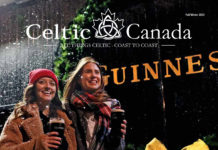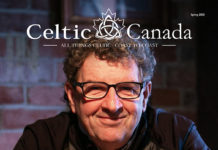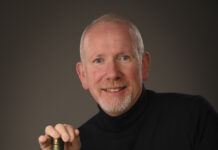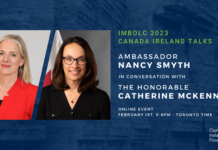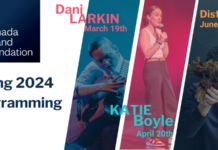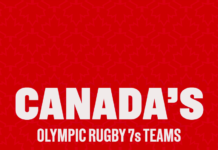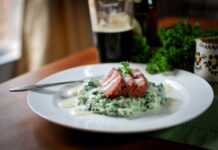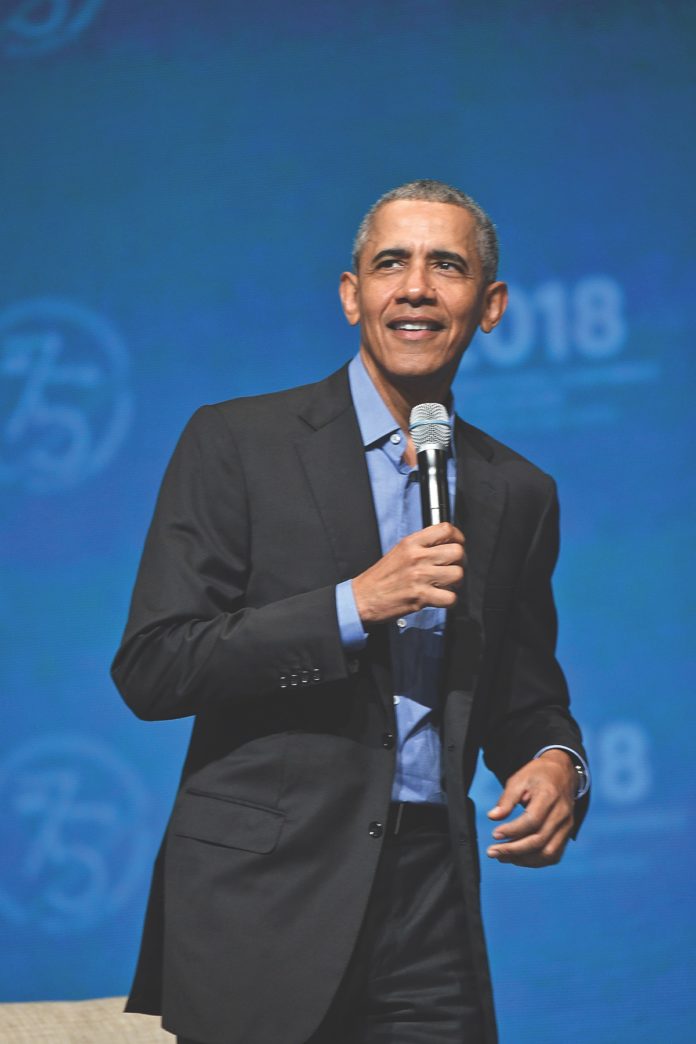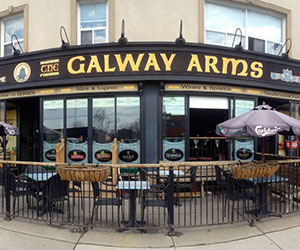The name is Obama not O’Bama and contrary to Trump’s “facts” he was born in the United States, not unfortunately, Ireland. However, we have a right to claim him as one of our own. The President’s great-great-great grandfather, Falmouth Kearney, was born in Moneygall, Co Offaly. Like hundreds of thousands of others, Kearney left Ireland during the Great Hunger (often erroneously referred to as the Famine). He was 19 years old. He sailed from Liverpool on the Marmion and arrived in New York on March 20th, 1850. The rest is history.
The President and his wife Michelle made an emotional and triumphant trip to Ireland in 2011. Enda Kenny was Prime Minister of Ireland at the time and said the President was coming home. He visited his ancestral home in Moneygall and had a pint of Guinness in the local pub. He was, of course, a big hit with the locals. He met his distant cousins in Moneygall. Many of his Irish cousins were subsequently invited to the White House as guests of the President. He was pleased to have met his Irish cousins and treated them with great respect.
The highlight of his visit to Ireland was when he spoke to a huge audience in College Green in Dublin. He had his slogan (We can do it) translated and delivered it in Irish “Is feider linn.” The huge crowd loved it.
One of my favourite Obama stories is about two African Americans watching Obama’s inauguration ceremony on TV in a bar in New York. One said “Isn’t it great to finally have one of our boys in the White House. His friend replied “Yeah, but if he screws up, he’s Irish.”
The Conference
Former President Barack Obama was the opening keynote speaker at the Association for Talent Development (ATD) Conference, in San Diego, this year
There was an audience of over 11,000 in attendance for his session. Rather than giving a keynote speech it was a sit-down Question & Answer session with ATD’s President, and CEO Tony Bingham.
Conference attendees knew that there would be a full house so they started lining up outside the San Diego Convention Centre at 5:30am for the 8:30 session. I was lucky as I joined the line at 7:30 and was seated by 8:00am.
The 44th President of the United States’ entrance was greeted with loud applause, a standing ovation and a contagious enthusiasm. His first words were “This is a feisty group for this early in the morning.” When someone emotionally shouted “We miss you” he replied with “I miss you too.”
In his 60 minute appearance he covered a lot of material. I’ll cover as many of his topics as space will allow.
The President put a strong emphasis the importance of values. Like the excellent speaker he is, he told a story to demonstrate his point. He told us about an Asian-American from Los Angeles who was in his 20s and worked on his presidential campaign in Iowa. For some strange reason he was assigned to a conservative rural community. Despite enduring an ethnic slur the volunteer carried on and endeared himself to the local community. He had a booth outside a grocery store and helped elderly shoppers by carrying their bags to their cars. He also volunteered to coach a Little League that was looking for a coach. He became so popular that “Some of the moms would cook for him.” Obama continued “he could have been elected Mayor [in that community].” Obama, who champions empowering youth, attributed this young man’s success to “a set of values that he carried into that situation, transmitted to him by his parents.” The former president went on to tell how certain values helped him be successful during his campaign and in his presidency. The values he espoused were honesty, hard work, respect, kindness and being useful. Values are so important that he said “I worry when our values are not upheld.”
He talked about his time at the White House when there would be various leaders of departments and agencies present around a table. There would also be an outer ring of people who were aids, staffers and assistants whom he referred to as those who “actually do the work.” These background people would be passing notes to the leaders at the main table. He said that these were the people who knew what was really going on, jokingly. The president would sometimes ask these people for their opinions on the topics being discussed. By doing this he was sending a message to the inner ring that these people should be listened to and asked for their feedback. He tied this in with his point of being inclusive. He said that there is a lot to be gained when we listen to those in the outer ring or those at lower levels in the chain of command, His other point here was the importance of treating all workers with respect, one of the values he advocated. Organizations need to get the message across that “you’re important enough that we’re going to invest in you,” he said.
When he talked about change he told another story. This one was about the time he quit smoking. He didn’t feel the need to quit as he was playing basketball, in good shape and looked good. This led to a round of applause, particularly from the women present. His response to the applause was “I wasn’t fishing for those, but…thank you ladies.” He’s still in good shape for a 56 year old. He knew that his smoking bothered his wife. He didn’t smoke in the house. His daughters could smell the smoke when he would return to the house and ask him about it. He had a choice at this stage. He didn’t want to lie to his daughters and he didn’t want to pass on his bad habit so he quit.
When he covered the importance of planning he said it took six months to prepare for the Osama Bin Laden attack. “We tested everything that could go wrong.” He spoke further about planning and learning from failure when he gave an example of when he decided to run for the Illinois State Senate in 2000 in Chicago. His Illinois staff said that he had a good chance of beating the incumbent Democrat. However, it turned out that only 11% of the people knew who he was. That led him to say “Always do the poll before you announce you’re going to run.” This is certainly sound advice and can be applied to many situations. He said that “it was ok to fail as long as you learned from it.”
While he made no reference to the current incumbent of the White House he put his hand on a table in front of him and said “This is a table.” In other words it is a fact. His audience knew what he was referring to. For us journalists it has become more difficult to report when we hear people like Kellyanne Conway, a White House spokesperson, talking about “alternative facts.” We now hear terms that we didn’t when President Obama was in the White House. We are now required to do fact-checking because of so much fake news coming from what were previously reliable sources. There are far too many weapons of mass deception around these days; enough said.
The following Obama quotes will stay with me for a long time:
“People respond when you
expect a lot of them.
Treat others with respect,
kindness and generosity
Be ambitious for what you want to
be rather than the title
Democracy is something that
has to be nurtured
Progress is not inevitable
We can do it”
Over 13,000 people attended the conference with 2,450 international attendees. The largest of the international groups were the Canadians, understandably, with 349,
but there were no recorded Irish in attendance.
By Paul Loftus
Paul Loftus is a Montreal-based Industrial/Organizational Psychologist, an Intercultural Consultant and a Freelance Journalist. He is a prominent member of Montreal’s Irish Community. He can be reached at
(514) 282-9111; ploftus@colba.net;
www.paulloftus.com





